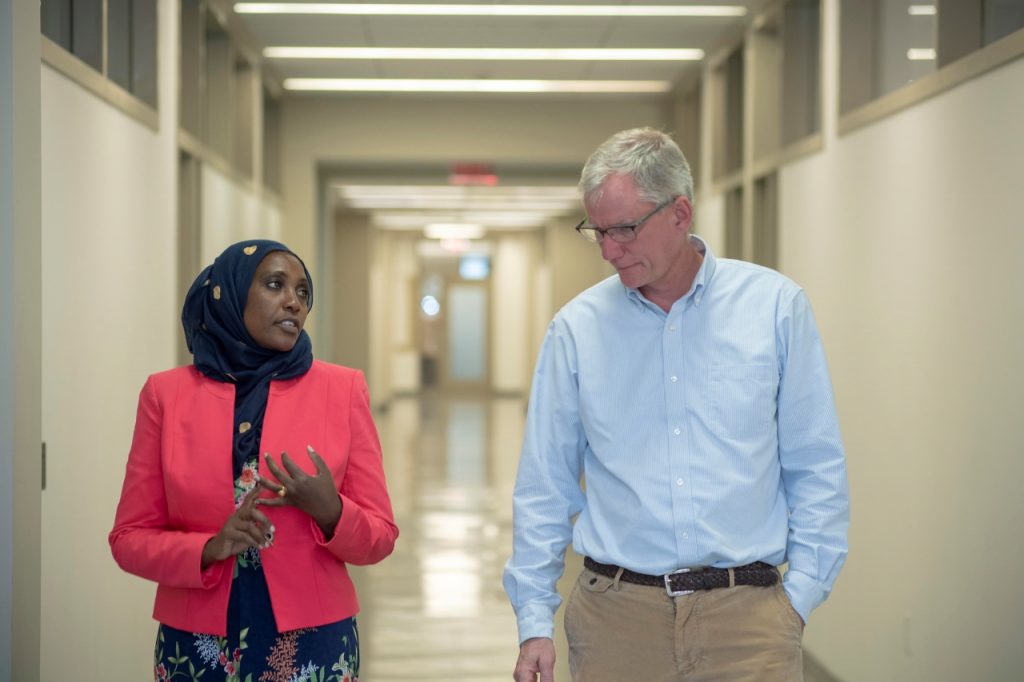Deadline: January 19, 2024
Applications are open for the Structural Transformation of African Agriculture and Rural Spaces (STAARS) Fellowship Program 2024. Early-career African researchers selected as STAARS Fellows in 2024 advance rigorous, policy-oriented research on the causal determinants of productivity and income growth, asset accumulation, rural employment and risk management in African agriculture and rural spaces.
STAARS Fellows will be paired with faculty, senior research staff, or affiliated researcher mentors from Cornell University, the World Bank, or PEP, with whom they will jointly author a paper on a topic of mutual interest relating to structural transformation in Africa south of the Sahara. The program aims for publication of resulting research findings in high quality, peer-reviewed journals and as working papers. In addition, the World Bank, PEP, and Cornell will facilitate Fellows’ participation in scientific and policy conferences, provide professional development training, and build Fellows international research networks.
Scope of Research & Geographic Focus
Prospective STAARS Fellows are invited to develop proposals in the following thematic areas for empirical work on Africa south of the Sahara:
- Dynamics of agricultural inputs use, technological change, and productivity growth.
- Rural factor (e.g., credit, labor, land) and product market performance and links to urban markets.
- Agri-food systems and value chains, their performance and evolution.
- Food security, nutrition, health and education linkages.
- Poverty dynamics, risk management and resilience against shocks.
- Sustainable natural resources management.
- Gender and marginalized groups.
STAARS Fellows’ rigorous policy analysis should use existing data, such as the Living Standards Measurement Study – Integrated Surveys on Agriculture (LSMS–ISA), Demographic and Health Surveys or similar high-quality datasets from Africa south of the Sahara. STAARS does not fund new data collection.
Program Overview
The STAARS program spans 15 months from the date of expected selection to the delivery of final outputs by the STAARS fellow. Selected STAARS fellows are matched with at least one main mentor who is faculty, senior research staff, or an affiliate researcher at Cornell, the World Bank, or PEP and who shares an interest in the proposed topic, as well as with a (more junior) peer mentor. Upon selection, mentorship and collaboration begin immediately with a series of launch workshops involving the fellows, mentors and STAARS leadership occurring during the first several weeks of the fellowship period. A period of regular remote collaboration follows, with weekly or biweekly virtual meetings.
During this period, training workshops are held at relevant points in the teams’ research process. Training workshops are designed to assist in fellows’ professional development and supplement their skills. Topics may include but are not limited to: coding and data management skills; reproducible research processes; technical writing; presentation skills; time management; grant writing; navigating peer review; research ethics; and policy engagement planning. In September 2024, the STAARS fellows spend 3-weeks visiting their mentors at the mentor’s institution, during which the STAARS fellows work intensively on the research project, participate in feedback workshops, hold a public seminar, and participate in network-building activities.
Funding
- The selected applicants will receive funds to cover travel and participation in a three-week mentorship program at Cornell University or the World Bank (based on mentorship). The remainder of the research coordination and professional development training will be conducted virtually. Fellows are expected to commit significant time to the proposed research and capacity development activities.
- A modest honorarium will be provided to each Fellow. No salary support is available; STAARS will not cover the scholar’s time allocated to this research. A letter of support from the candidate’s current advisor/supervisor/or manager is required, explicitly indicating that adequate work time will be made available for full participation in the program, if selected. The program cannot support costs for any new data collection.
Eligibility
- Open for early career African researchers, either Ph.D. students in their final year prior to degree completion or preferably those who completed their Ph.D. no earlier than 2018. Priority is given to researchers who are African nationals based and working in – or soon returning to – Africa, with proposals relating to the research themes indicated above.
- Qualified female researchers are particularly encouraged to apply.
- STAARS welcomes applications from fresh Ph.D. graduates who can benefit from mentorship and additional training to become internationally respected and recognized researchers. Fellows are expected to complete the proposed project by submitting findings as a draft working paper by December 13, 2024, and proceeding to submit the paper to a peer-reviewed journal and/or conferences by June 30, 2025.
- Researchers are expected to be familiar with and have demonstrated access to existing data sets and have a strong working knowledge of appropriate software, typically Stata and/or R, and an interest in econometric analysis of high-quality data sets. Knowledge of geo-referenced data and GIS software to manage them is an asset.
- Knowledge of Stata and/or R will be assessed at the finalist stage.
Application
Within the online application, complete the applicant information and research sections. At the end of the application form attach, as a ZIP folder or merged PDF, the following materials:
- Research Proposal (2500 words max.):
- Title of the proposed research
- Targeted country(-ies)
- Introduction and motivation that includes clear statement of research objectives and hypotheses
- Description of data source(s) and any prior experience working with the proposed data
- Proposed methodology
- If applicable, summary of any preliminary results
- Proposed timeline for the research
- Bibliographic references (not included in the 2500 words)
- CV of the applicant
- If proposing to use data that are not publicly available, a letter or other documentation from the data steward(s) indicating that the applicant will have access to the data to use in the proposed project
- Letter of support from applicant’s current supervisor, clearly indicating that the applicant will be granted time to work on this project, if selected
- Photocopy of the passport biodata page and, if applicable, any current US visa
For more information, visit STAARS Fellowship.

